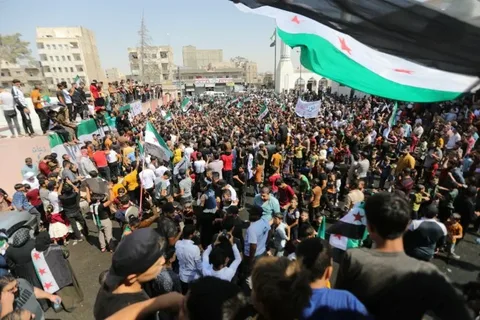The Syrian Center for Syria’s Economic Reform Research (SCER) has devised a daring plan to solve the Syrian economy’s crisis: the transitional administration should digitalize the Syrian pound and legalize Bitcoin. The proposal’s stated goals include nationwide decentralized and centralized banking development. Infrastructures and the establishment of a robust digital economy.
Syria’s Digital Currency Plan
With the goal of attracting foreign investment to a war-torn economy that is battling with hyperinflation and currency depreciation, the plan would represent a significant change in Syria’s monetary policy if it were to be put into action.
In line with international and national norms, the plan lays out a legislative framework to make it legal to trade, mine, and exchange digital assets like Bitcoin. Digitalizing the Syrian pound, using a blockchain to mint it backed by liquid assets like gold and other reserves, is central to the concept. The central bank and other appropriate regulatory bodies will oversee this process.
Syria’s Blockchain Financial Reform
The safety and openness of financial dealings, the ease of sending money abroad. The expansion of online shopping could all be enhanced by this change. Along with alleviating financial difficulties, the program aims to provide. Syrian inventors and entrepreneurs have a platform to thrive in a free market not constrained by monopolistic behaviours. Encouraging individuals to own their digital assets fully and protecting private property rights will also be priorities.

The program’s secondary goals include bringing banks into the current era and inspiring new businesses to provide Bitcoin and blockchain-related services. In spite of its potential, the plan acknowledged that it would have to overcome several obstacles. Such as the public’s lack of knowledge and understanding of the situation and the geopolitical tensions that have impeded Syria’s Economic Reform rehabilitation efforts for so long.
SCER on Sanctions and Transition
Additionally, the SCER clarified that the transitional government has not accepted or considered this idea. They “do not expect them to do so anytime soon” according to the volunteer-driven movement, which also emphasized. That the transitional administration had more “pressing issues to address at this time.” It continued by saying,
We would want to stress that our intention is not to evade global sanctions. We urge the immediate reversal of sanctions through all appropriate political and legal channels in conformity with international law. The aims and achievements of the interim government brought attention to their attempts to stabilize the nation and interact with international and regional players.
Al Shibani Urges Sanctions Reassessment
The most recent turn of events coincides with the demands for the immediate easing of international sanctions made by Asaad Hassan al-Shibani, Syria’s new foreign minister. Speaking only a few short weeks after Bashar al-Assad was deposed, al-Shibani detailed.
Sanctions, according to Al-Shibani, have served their initial goal of pressuring. The Assad regime during its savage suppression of uprisings in 2011, but they no longer have any relevance. After the dictatorship fell, thousands of political prisoners were released. He called on the world to reevaluate the sanctions, saying they were hurting Syrians and preventing the country from recovering.
[sp_easyaccordion id=”3097″]

